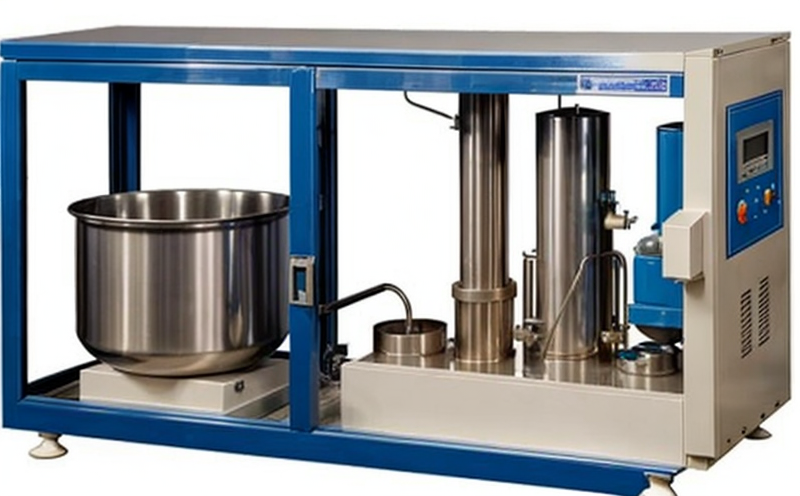ISO 29644 Zearalenone Detection in Swine Feed
The presence of zearalenone (ZEN) in swine feed is a critical concern due to its potent estrogenic effects. This mycotoxin, produced by certain fungi such as Fusarium, can pose serious health risks and economic losses for livestock producers. ISO 29644 provides a robust framework for the detection of ZEN in swine feed, ensuring that feeds meet stringent quality standards.
The European Union has set strict limits on zearalenone content in animal feed to protect both animal welfare and human health. The maximum allowable levels are 150 μg/kg for pigs, which underscores the importance of accurate detection and monitoring. This service ensures compliance with these regulations while providing actionable insights for quality managers and R&D engineers.
The ISO standard specifies a method based on liquid chromatography-tandem mass spectrometry (LC-MS/MS). This technique allows for precise quantification, even at low concentrations, making it ideal for detecting ZEN in swine feed. The process involves several critical steps: sample preparation, extraction, purification, and finally, the analysis using LC-MS/MS.
Sample preparation is crucial to ensure accurate results. Swine feed samples are thoroughly homogenized before being extracted with organic solvents. The extracts undergo further purification to remove interfering compounds. This meticulous process ensures that only zearalenone is detected in subsequent analyses, providing reliable data for decision-making.
The LC-MS/MS system used in this service delivers high sensitivity and selectivity, enabling the detection of trace amounts of ZEN. The method is validated according to ISO 29644 requirements, ensuring that results are consistent and reproducible across different laboratories.
For quality assurance, Eurolab employs a quality management system certified under ISO 17025, which guarantees the accuracy and reliability of test results. This compliance ensures that our clients can trust the data we provide for regulatory submissions and internal quality control.
The use of this service not only meets regulatory requirements but also supports sustainable agricultural practices by minimizing risks associated with contaminated feed. By adhering to ISO standards, livestock producers can safeguard their operations from potential legal issues and financial losses due to non-compliance or contamination.
- Reduction in Feed Contamination Risk: By detecting zearalenone early, producers can take corrective actions before it affects the health of swine populations.
- Enhanced Animal Welfare: Ensuring feed safety helps maintain healthy and stress-free livestock, which is vital for ethical farming practices.
- Protection Against Legal Issues: Compliance with ISO standards shields producers from potential lawsuits related to contaminated feed.
In summary, the ISO 29644 Zearalenone Detection service in swine feed offers a comprehensive approach to identifying and mitigating risks associated with this mycotoxin. This expertise is essential for ensuring compliance with international standards while promoting sustainable agricultural practices.
Eurolab Advantages
At Eurolab, we pride ourselves on offering unparalleled services tailored specifically to the needs of our clients in the food and feed industry. Our ISO 29644 Zearalenone Detection service is no exception, boasting several advantages that set us apart:
- Precision and Reliability: Utilizing state-of-the-art LC-MS/MS technology, we deliver highly accurate results every time.
- Compliance with Global Standards: Our services are meticulously aligned with international standards like ISO 29644, ensuring that your operations meet all required benchmarks.
- Expertise and Experience: Our team of experts is well-versed in the latest techniques and methodologies, providing you with comprehensive support throughout the process.
- Cost-Effective Solutions: By streamlining your testing procedures and ensuring compliance early on, we help reduce costs associated with non-compliance or contaminated feed.
- Dedicated Client Support: Our dedicated team is always available to answer questions and provide guidance, ensuring a smooth experience from start to finish.
Our commitment to excellence in every aspect of our services ensures that you receive the highest quality results. Whether you're looking for routine testing or one-off assessments, Eurolab offers the expertise and resources necessary to meet your specific needs.
International Acceptance and Recognition
The ISO 29644 Zearalenone Detection service in swine feed is widely recognized across Europe and beyond for its reliability and accuracy. This standard has gained international acceptance due to its rigorous methodology and stringent quality assurance measures.
Countries like Germany, the Netherlands, and the United Kingdom have implemented this ISO standard as part of their regulatory frameworks. These nations recognize the importance of zearalenone detection in maintaining food safety standards and ensuring animal health. The European Commission's regulations on feed additives and contaminants explicitly mention the use of ISO 29644 for ZEN detection.
Other global bodies such as the World Organization for Animal Health (OIE) also recommend this standard for its robustness. By adhering to these international standards, Eurolab ensures that our services are not only compliant but also recognized worldwide, providing peace of mind for clients operating in diverse markets.
The widespread acceptance of ISO 29644 is further bolstered by the growing awareness of mycotoxin risks in animal feed. As more countries implement strict regulations on zearalenone content, demand for reliable testing services continues to rise. This trend underscores the importance of staying current with international standards and ensuring that your operations meet these stringent requirements.
By aligning your testing procedures with ISO 29644, you can ensure that your feed products are safe, compliant, and trusted by consumers worldwide. This commitment to excellence not only protects your brand reputation but also fosters long-term sustainability in the food and feed industry.
Frequently Asked Questions
- Reduces contamination risks, enhancing animal health and welfare.
- Avoids legal issues related to contaminated feed.
- Promotes sustainable agricultural practices by minimizing harm from mycotoxins.





